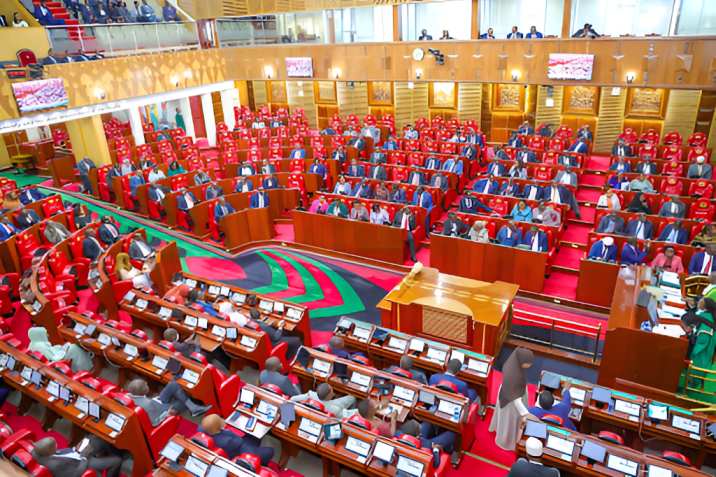Fresh budget standoff as Senate pushes Sh465 billion for counties

The wide gap has triggered a new mediation process between the two Houses, reopening long-standing tensions over how much funding devolved units should receive.
A fresh showdown looms between the Senate and National Assembly after senators unanimously approved a Sh465 billion allocation to counties in the 2025 Division of Revenue Bill, outpacing the Sh405 billion previously passed by MPs.
The wide gap has triggered a new mediation process between the two Houses, reopening long-standing tensions over how much funding devolved units should receive.
The Senate’s proposal was fronted by the Finance and Budget Committee, which cited mounting financial pressures on counties as justification for the enhanced amount.
Vice chairperson Tabitha Mutinda argued that counties have no choice but to absorb non-discretionary costs that now total Sh34 billion, arising from directives by the national government.
"These counties are being forced to shoulder non-discretionary expenditures amounting to Sh34 billion, imposed by national government directives," she said.
These include Sh4.1 billion for the Housing Levy, Sh6 billion in NSSF contributions, Sh11.8 billion for Aggregated Industrial Parks, Sh3.23 billion for community health promoter payments, Sh6.3 billion for payroll-related annual increments, and Sh3.5 billion for doctors' salary increases.
Even as the Senate fought for higher funds, its Majority Leader, Aaron Cheruiyot, raised alarms over financial misuse at the county level.
“About 34 out of 47 counties spend more than 50 per cent of their shareable revenue on recurrent expenditure,” he noted.
“Less than 10 counties allocate more than the statutory 25 per cent on actual development,” he added, warning that many counties are operating like struggling businesses.
“It makes no sense to fight for Sh400 billion or Sh450 billion for counties when 90 per cent of that money is misappropriated. Why should we send that much if over half of it is used to pay 300,000 to 400,000 people, excluding millions of others?” he posed.
The National Assembly, on the other hand, insists that its Sh405 billion figure is grounded in realism.
In a statement, Speaker Moses Wetang’ula said the approved allocation already includes an increase of Sh17.6 billion compared to the current financial year.
“This figure was guided by the government’s commitment to a fiscal consolidation plan aimed at reducing the fiscal deficit to 4.3 per cent of GDP. This is intended to slow the accumulation of public debt, improve the primary surplus, and enhance fiscal sustainability,” Wetang’ula explained.
He added that the country’s revenue performance remains weak due to global shocks, unstable exchange rates, and rising international borrowing costs.
Wetang’ula also argued that the national government often takes budget hits while shielding counties from the same.
“Article 218(2)(b) of the constitution requires that revenue sharing between the two levels of government consider criteria outlined in Article 203(1), including national interest, public debt and the needs of disadvantaged areas,” he said.
Despite these concerns, Senate Chief Whip Boni Khalwale welcomed the proposed higher amount, describing it as a reasonable balance when considered alongside the Sh2.231 trillion allocated to the national government.
